Feature
-
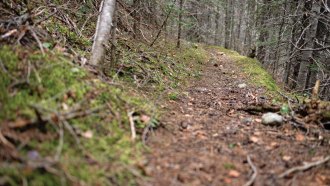 Archaeology
ArchaeologyA race to save Indigenous trails may change the face of archaeology
As construction of a pipeline nears, an effort to preserve an Indigenous trail in Canada tests whether heritage management can keep up with advances in archaeology.
By Sujata Gupta -
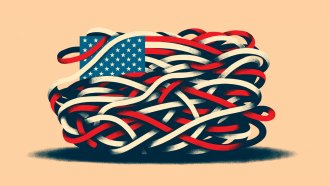 Science & Society
Science & SocietyIs U.S. democracy in decline? Here’s what the science says
Political scientists disagree over how to interpret a slight dip in the health of U.S. democracy.
By Sujata Gupta -
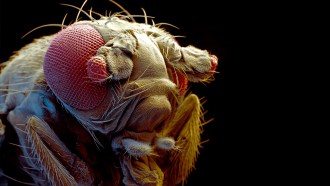 Life
LifeThe fruit fly revolutionized biology. Now it’s boosting science in Africa
African researchers are using Drosophila melanogaster fruit flies to advance studies of genetics, biomedicine, developmental biology, toxicology and more.
-
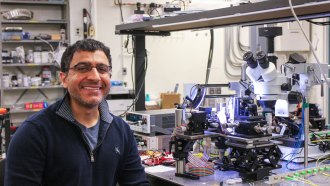 Computing
ComputingThis engineer’s light-based computers take inspiration from the brain
Physicist and engineer Bhavin Shastri is working to create the first photonic computer modeled after the human brain.
By Claire Yuan -
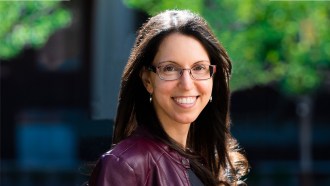 Quantum Physics
Quantum PhysicsWhy this physicist is bringing thermodynamics to the quantum age
Like a steampunk fantasy-world, which pairs high-tech with an old-timey setting, Nicole Yunger Halpern melds old and new science.
-
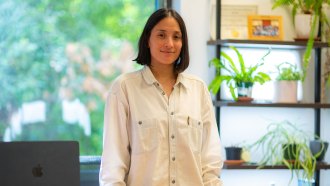 Neuroscience
NeuroscienceA cell biologist is investigating the balance of brain flexibility, stability
Andrea Gomez, a Berkeley molecular and cell biologist, applies her wide-ranging curiosity to brains’ mysteries ranging from synapses to psychedelics.
-
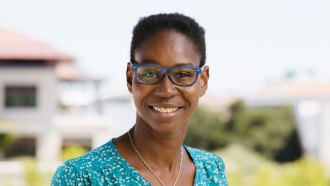 Life
LifeThis biophysicist’s work could one day let doctors control immune cells
The Stanford biophysicist thinks that understanding the mechanics of cell movement could allow scientists to manipulate immune cells.
By Meghan Rosen -
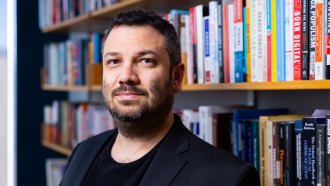 Science & Society
Science & SocietyThis researcher studies how misinformation seeps into science and politics
The world is awash in information. Communications researcher Yotam Ophir digs into news articles and survey results to show how beliefs form and spread.
By Sujata Gupta -
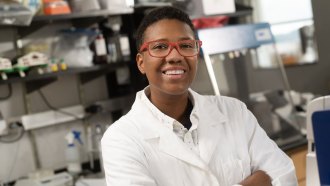 Health & Medicine
Health & MedicineHIV and illicit drugs are a bad mix. This scientist found an unexpected reason why
The neuroscientist considers themself an outsider, which allows them to embrace people who have been marginalized, including people who have HIV.
-
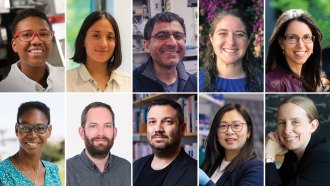 Science & Society
Science & Society10 early-career scientists tackling some of the biggest problems of today
For the ninth year, Science News honors researchers in its SN 10: Scientists to Watch list.
-
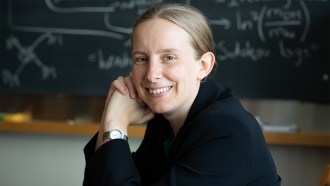 Cosmology
CosmologyHow did dark matter shape the universe? This physicist has ideas
Theoretical physicist Tracy Slatyer proposes new scenarios for dark matter and helped discover the Fermi bubbles.
By Adam Mann -
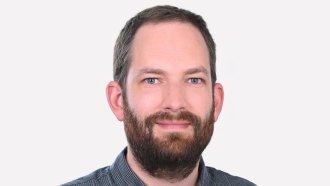 Neuroscience
NeuroscienceBy studying the eyes, a researcher explores how the brain sorts information
Freek van Ede seeks to understand how the brain selects information to plan for the future. He’s finding clues in the tiny movements people make with their eyes.